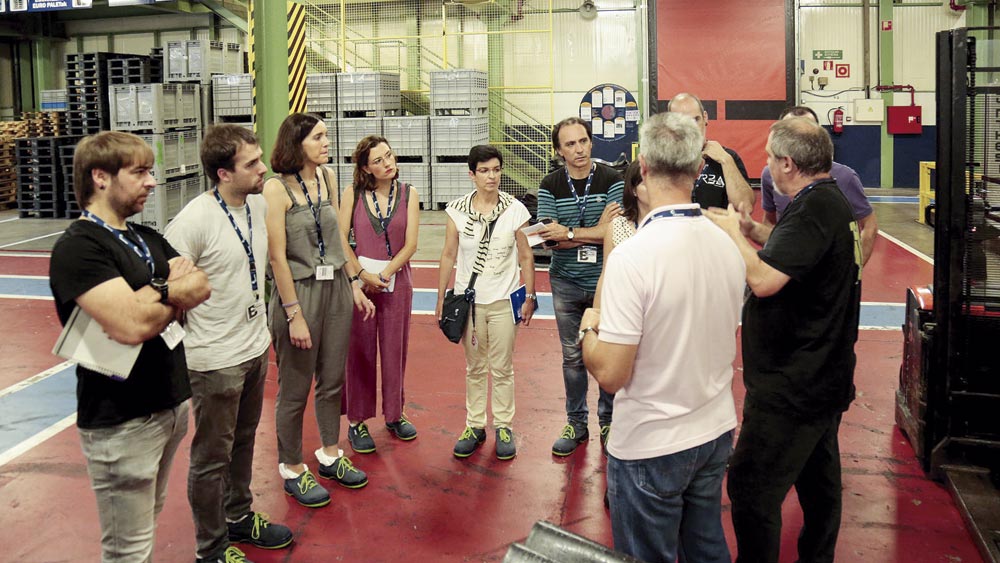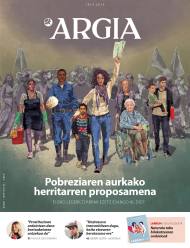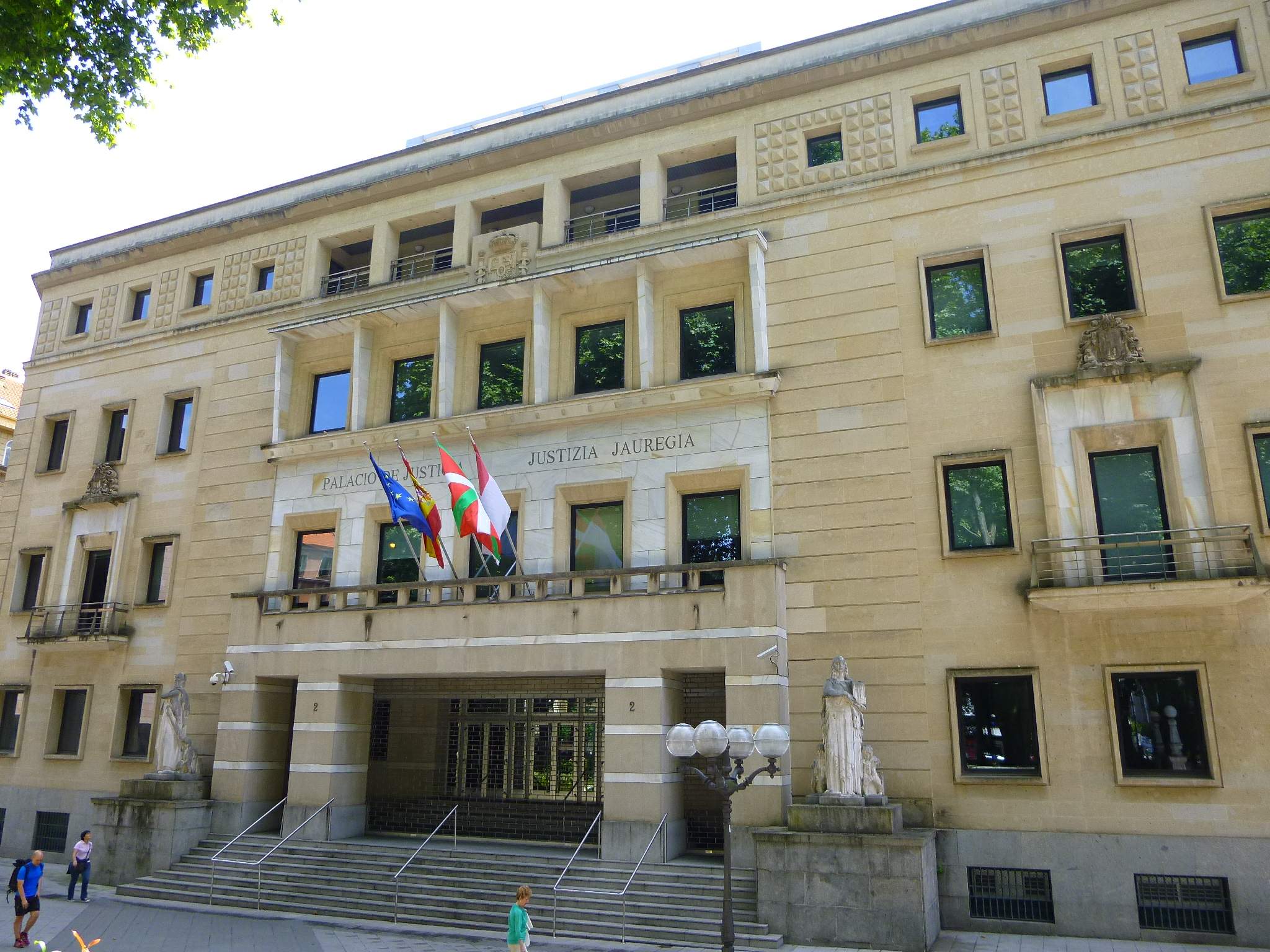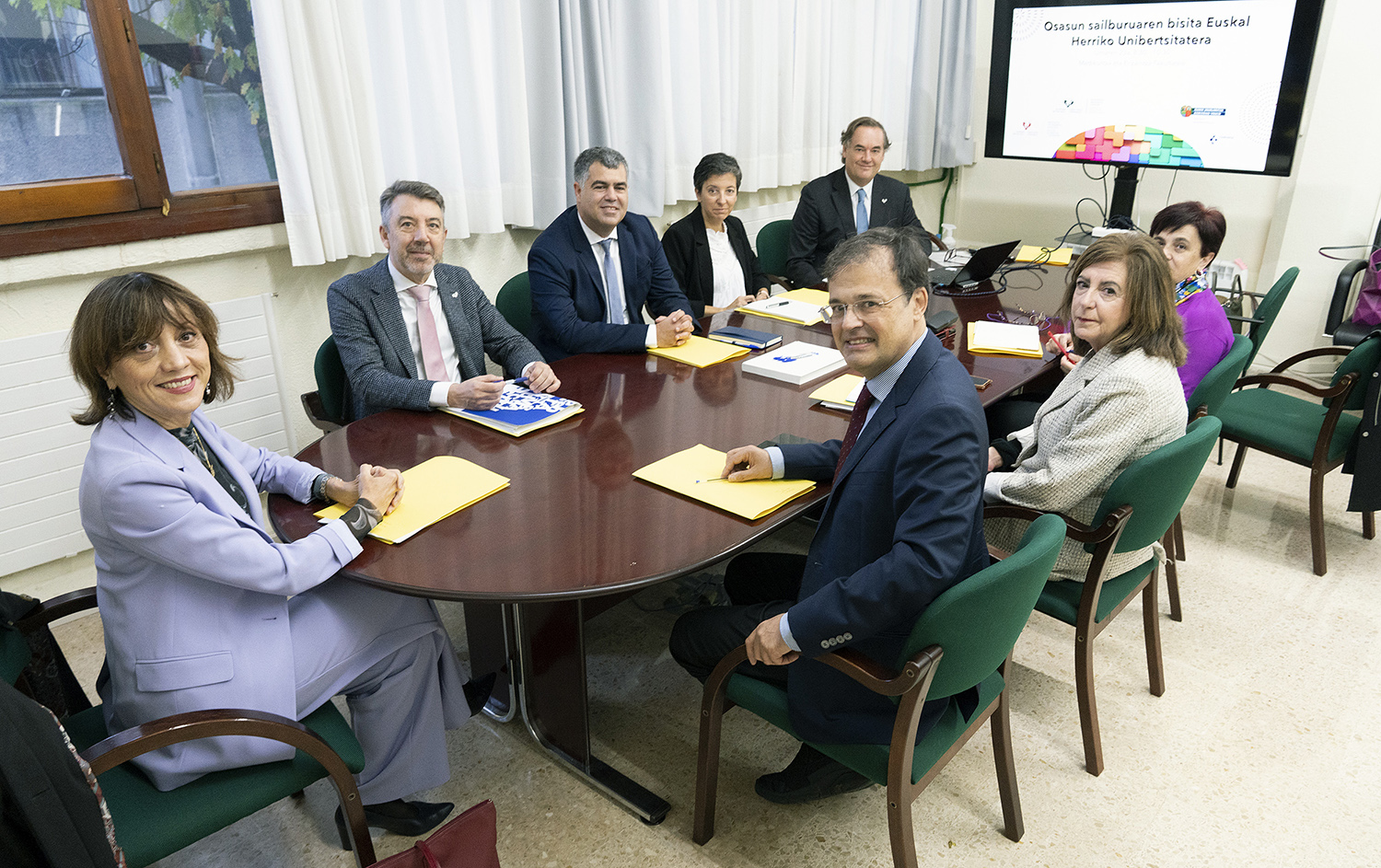Pioneers remixing novices
- The Mondragon Corporation has already taken several steps and is making the way for the normalization of the Basque Country to become a reality. Several companies that want to work in the same direction have visited you to learn about your experience.

Euskaragiletu is a project launched by the Council of Social Organizations of the Basque Country. The Euskera plan is aimed at companies that want to improve or create their own Euskera plan. Those who are advanced in the normalization of the Basque Country are called Euskaragileak, a group of about a dozen, and the Council considers that it is a quarry that must be used because they can become models for other companies and learn from them.
They have already made three visits. The “pupils” have been the following companies: Cooperativa Fagor Automotion, OBE Hettich, Gorosabel Eléctrica, Cooperativa Eika, Mutualia, LagunAro and Ekide Group. The last visit to the cooperative took place on 6 November by the Mondragon Corporation Central Service. In addition to offering them the possibility of having an advisory service, they have presented the process of euskaldunization of the house.
Possibility to work in Basque
It was in the 1980s that the Mondragon Corporation carried out this reflection. As he explained to the visitors, the Basque country was used informally in cooperatives, for internal relations. They decided that they had to take it to the formal level. For this, they needed vasco-speakers, so the Euskaldunes began to train, teaching Euskera classes.
A similar thought is given to the members of the companies that have participated in the Euskaragiletu programme. In the company there are those who use Euskera for informal relationships, while for work they do not. They stress the importance of ensuring the use of Euskera to both workers and society in general: “To do our job well, the workers have to be at ease. The Basques must be given the opportunity to work in Basque.” For this reason, some of them have implemented Euskera plans and have decided to participate in the Euskaragiletu programme: “Getting to know the experiences of the most experienced companies is interesting and very useful to know the evolution and benefits of the Euskera plan, as well as to receive help and advice.”
The member of the Mondragon Corporation has explained to the visitors the most recent steps. In 2006, the decalogue of the Basque Country, the Bases for the Normalization of the Basque Country, was written. The main objective of the decalogue is to guarantee the option of the Basque Country, and to this end a series of bases were established: to guarantee the possibility of learning Euskera and to offer resources to do so, to promote the knowledge of the Basque country among the workers, to take into account the knowledge of the Basque country when hiring, and that the Basque country is a priority in image and communication, among others.
In this process, the partners of Mondragon Zerbitzuak Zentral have stated that they have not received any kind of open opposition, according to sources from the cooperative. So, at least in that respect, they have had no problem. On the contrary, the representatives of the companies that attended the visit have identified a number of difficulties.
Recruiting Basque workers
As explained by a representative of the company during the visit, steps have been taken backwards in the company. A few years ago, they had relationships in Basque: “We were small, we were all Euskaldunes, and we did everything in Euskera.” In recent years, however, he has pointed out that they have hired people who have increased their company and do not know Euskera. This has had consequences, of course, since now neither half of the time they speak in Euskera, “we have realised that we are not well on that path and we have to turn the situation around.” Now, often, Euskaldun and always communicated in Euskera work in Spanish. A worker of the company Cikautxo, a member of the Euskaragileak Commission, has stated this: “I have always done everything in Basque, Spanish and Basque. That's not me. The process of Euskaldunization has helped me to be what I am.”
Another representative explained that a minimum level of understanding had been established at the time of hiring: “In Euskadi we have two lines, training and hiring. Our scope and our reality have always been very Castilian, so we have to offer the opportunity to learn. On the other hand, we have considered it essential that workers have a minimum of understanding.”

Problems of technical language
Despite using Euskera for informal relationships, many people do not do the same to work. The reason for this is, on many occasions, vocabulary. This was stated at the visit meeting: “In our company we use a very technical, computer, economic vocabulary… it is a very special language. We therefore have to learn that lexicon, also our suppliers, because otherwise they do not understand us, and many of them are foreigners. We cannot use the Basque language to communicate with those from outside.” Several have pointed out that, although in the working world they see the need to speak in Basque, they have
clients outside the Basque Country, and that in such cases meetings, minutes and contacts are held in other languages. Many others have explained that there are many workers who are learning Basque outside the Basque Country.
Customs, are about to change
Through the Euskaragiletu programme, companies can share experiences and difficulties. Some of them have explained that the visit has served them to see that the journey of others and their journey is very similar and that many of the concerns are the same. Everyone has joined with an idea: breaking the dynamics of the company is the most difficult step.
In many cases people are very Euskaldun, but their relations with each other are not. To this end, the members of the Mondragon Corporation have stressed the importance of having the criteria, the bases, the objectives, etc. drafted. They have recently drawn up a Strategic Plan. It has set the following challenges: to maintain the bases for the normalization of the Basque Country, to promote the analysis of the Basque Country in the institutional culture, to develop strategies to achieve the normalization of the Basque Country and to disseminate the Basque leadership and image in the Mondragon Corporation.
According to the companies participating in the program, the visits have been “very useful to know the steps taken by the pioneers and to be aware of the difficulties they have encountered”. In this regard, they have stressed the need to provide resources so that the challenges and objectives agreed within the company can be achieved. And, of course, they have also said that involvement and enthusiasm are fundamental. In fact, “in the working world there is a great lack of habit of speaking in Basque, but customs must be changed”.
Gasteizko 1 zenbakiko Auzitegi Kontentzioso-Administratiboak emandako epaia berretsi du EAEko Justizia Auzitegi Nagusiak. Lan poltsan parte hartzeko euskara maila altuenaren baliokide diren 3. eta 4. eskakizunak indargabetu zituen Gasteizko Auzitegiak.
In recent months I have had to work in a number of institutes and, at some point, I have had to talk to the students about the possibilities offered by the labour market. The typology of the students is varied and in the same city varies a lot from one neighborhood to another,... [+]
Languages Lan has just organised the first international conference on linguistic management in Bilbao. Much has been said in the Congress about language policy, management and tools. And emotions. And from emotions, how many cooperatives, companies and organizations in our... [+]
Few spend their whole lives at the same work. What was common at the time of our parents, today, is absolutely unusual. It seems that millennial generation youth will not spend five years in the same job and the time will be much shorter between Z and Alpha generations.
I too,... [+]












.jpg)







